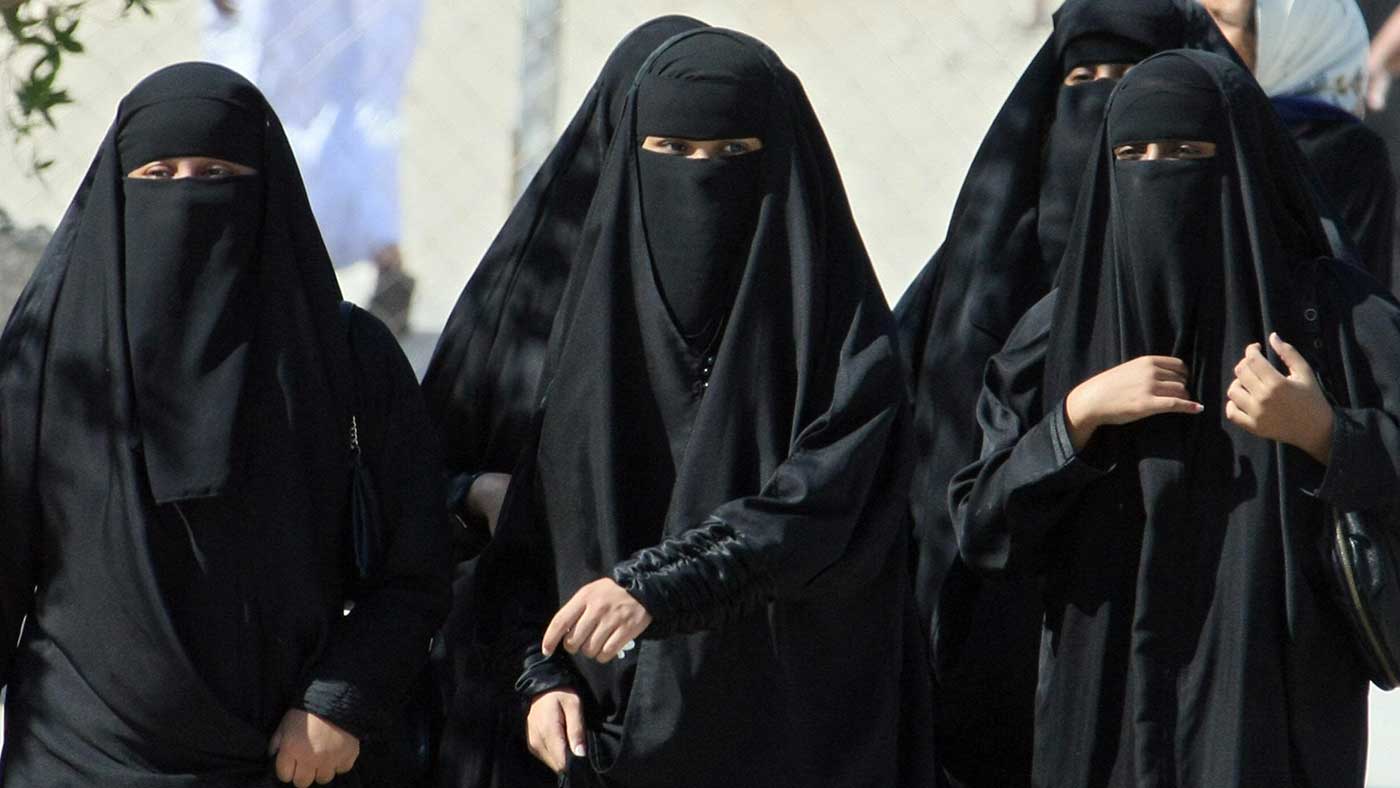Saudi Arabia to open sports stadiums to women
Three major cities will allow female spectators from early this year in latest reform

A free daily email with the biggest news stories of the day – and the best features from TheWeek.com
You are now subscribed
Your newsletter sign-up was successful
Three of Saudi Arabia’s biggest sports stadiums will open their doors to women, in a first for the ultra-conservative kingdom.
The Saudi sports ministry said that stadiums in Riyadh, Jeddah and Damman will be “ready to accommodate families from early 2018”, Al-Arabiya rpeorts.
This terminology is in line with common practice in other gender segregated public spaces, such as restaurants and cafes, which are usually divided into a men-only area and a “family” zone for women and mixed-sex family groups.
The Week
Escape your echo chamber. Get the facts behind the news, plus analysis from multiple perspectives.

Sign up for The Week's Free Newsletters
From our morning news briefing to a weekly Good News Newsletter, get the best of The Week delivered directly to your inbox.
From our morning news briefing to a weekly Good News Newsletter, get the best of The Week delivered directly to your inbox.
It is the second headline-grabbing reform in Saudi Arabia in as many months. In September, it was announced that King Salman had instructed the country’s driving licence offices to reverse decades of tradition by issuing licences to women.
The first women drivers are expected to take the wheel in June 2018, when the king’s decree comes into force.
Last month also saw the stadium ban temporarily lifted to allow female spectators to watch a programme of festivities at the national stadium marking the nation’s founding by King Abdulaziz in 1932.
Saudi National Day became a public holiday in 2005, but celebrations have become increasingly grandiose in recent years, as part of a drive to instill secular notions of patriotism and develop a national identity independent of religion.
A free daily email with the biggest news stories of the day – and the best features from TheWeek.com
The celebrations also showcased another crucial element of the modernising agenda - fun.
The General Entertainment Authority, set up last year, has set about reintroducing previously banned entertainments in order to get Saudis out of their homes and putting their spending money into the local economy.
The ban on music concerts has been lifted, cinemas are set to open their doors for the first time since the 1980s, despite resistance from conservative clerics, the BBC reports.
BBC Radio 4 journalist Kirsty Lang wrote in the Financial Times earlier this week that, in the capital Riyadh at least, social norms are evolving fast.
Although Saudi Arabia is synonymous with face-covering black abayas in many Westerners’ eyes, “while most women still cover their heads, a significant minority no longer bothers,” she writes.
The recent reforms are part of a strategy called Vision 2030, which aims to lessen Saudi Arabia’s reliance on the oil industry by developing the private sector and making the kingdom more attractive to foreign investors.
Earlier this month, Crown Prince Muhammed bin Salman - seen as the driver of the reforms - said the strict Wahhabist ideology which arose in response to the Islamic Revolution in Iran in 1979 was not a true representation of Saudi Arabia’s culture.
"We are returning to what we were before - a country of moderate Islam that is open to all religions, traditions and people around the globe," he said.
-
 The Week Unwrapped: Do the Freemasons have too much sway in the police force?
The Week Unwrapped: Do the Freemasons have too much sway in the police force?Podcast Plus, what does the growing popularity of prediction markets mean for the future? And why are UK film and TV workers struggling?
-
 Properties of the week: pretty thatched cottages
Properties of the week: pretty thatched cottagesThe Week Recommends Featuring homes in West Sussex, Dorset and Suffolk
-
 The week’s best photos
The week’s best photosIn Pictures An explosive meal, a carnival of joy, and more
-
 Epstein files topple law CEO, roil UK government
Epstein files topple law CEO, roil UK governmentSpeed Read Peter Mandelson, Britain’s former ambassador to the US, is caught up in the scandal
-
 Iran and US prepare to meet after skirmishes
Iran and US prepare to meet after skirmishesSpeed Read The incident comes amid heightened tensions in the Middle East
-
 Israel retrieves final hostage’s body from Gaza
Israel retrieves final hostage’s body from GazaSpeed Read The 24-year-old police officer was killed during the initial Hamas attack
-
 China’s Xi targets top general in growing purge
China’s Xi targets top general in growing purgeSpeed Read Zhang Youxia is being investigated over ‘grave violations’ of the law
-
 Panama and Canada are negotiating over a crucial copper mine
Panama and Canada are negotiating over a crucial copper mineIn the Spotlight Panama is set to make a final decision on the mine this summer
-
 Why Greenland’s natural resources are nearly impossible to mine
Why Greenland’s natural resources are nearly impossible to mineThe Explainer The country’s natural landscape makes the task extremely difficult
-
 Iran cuts internet as protests escalate
Iran cuts internet as protests escalateSpeed Reada Government buildings across the country have been set on fire
-
 US nabs ‘shadow’ tanker claimed by Russia
US nabs ‘shadow’ tanker claimed by RussiaSpeed Read The ship was one of two vessels seized by the US military